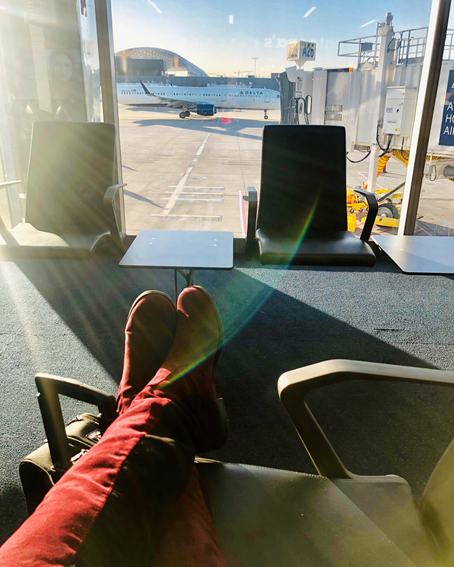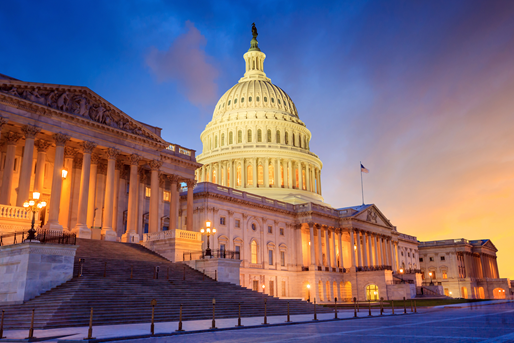If you’re not among the 800,000 federal workers directly hit in your wallet by the government shutdown it’s easy to read about stories of people not being able to pay their rent/mortgages, buy groceries, pay for essential medication, etc. and say “oh wow, that’s really bad”, shake your head and continue on with your life.
At the time of this article we’re entering the 2nd month of the longest government shutdown in our country’s history. A government shut down occurs when the President and Congress cannot come to an agreement on 12 appropriation bills which are needed to fund the federal government for a full fiscal year. In a normal budget process Congress appropriates funds by October 1st for the following fiscal year. When they don’t do this they enact a “continuing resolution” (CR) which is a temporary funding extension to give more time to enact the 12 appropriation bills. When Congress can’t agree on that it forces a shutdown.
So what’s at the heart of the latest shutdown? Conflicts over immigration reform funding which includes the elimination of temporary protection for immigrants seeking asylum from countries ravaged by war or natural disaster, particularly African and predominately Muslim countries such as Sudan and Syria as well as Trump’s demand of $5.7B in funding for a Mexican border wall. Agencies that are not deemed” essential” have their funding on hold until the government reopens which results in almost 400,000 non-critical workers sent home (furloughed) without pay and an additional 400,000 critical workers having to report to work without pay.
Even if your pay is not directly impacted as a federal worker here are 4 ways you could still be affected:
- If you have clients who rely on federal government funding and resources, your income will be hit soon. Delta announced in a recent interview that they experienced approximately $25M in lost revenue due to reduced travel from federal contractors and employees as a result of the government shut down. In addition, industries relying on government inspection and labeling services such as food and drug industries have to now shelf products until the government reopens. Southwest announced they had to press pause on their highly anticipated service from California to Hawaii scheduled for early 2019 due to aviation inspectors that were furloughed. Certain ready-to-eat foods such as dairy and leafy greenscould be vulnerable due to reduced staffing as Food and Drug Administration inspectors call out sick who can no longer afford to work for free.

2. If you are a Landlord with tenants who rely on government stipends for rent payments, I hope you have a nice reserve to cover your expenses if the shutdown continues. Buildings that are subsidized by a U.S. Department of Agriculture rental assistance program are funded through January. Federal housing programs run by U.S. Department of Housing and Urban Development (HUD) are funded only through February. If the shutdown continues, many landlords will struggle to pay for mortgages, rental income, staff and maintenance without the government kicking in its part. This could lead to evictions for economic reasons which are allowed by law.
The shutdown also could delay federal funding that local organizations use to serve people who are low-income, homeless, disabled or those with HIV/AIDS which could result in gaps in services and increased homelessness.
3. If you have travel plans pending get ready for delays in passport processing and build extra time for airport checkpoints. Passport processing will continue during the shutdown but there is no doubt that delays could occur if more immediate processing is needed. For emergency assistance the U.S. Department of State has special requirements and processing in place. So, if you don’t already have your passport, immediate international travel plans could be an issue.
My home base is Atlanta, GA which is also the home to the busiest airport in the world, Hartsfield International, and home to the world’s biggest football game this year. Atlanta’s airport has already experienced strains with TSA agents calling out sick and two –hour long security waits after agents missed their first paycheck in January. Though Hartsfield as well as many airports across the country are implementing contingency plans, increased security threats with checkpoint delays generate growing concerns as the shutdown continues. (Atlanta airport advises get to the terminal 3 hours early.)
4. If you don’t already electronically file your taxes you might want to start now. Contrary to early reports, the Internal Revenue Service (IRS) will continue to process tax returns during the shutdown. This does not mean that there will not be delays due to low manpower. This will be a good year to make Turbo Tax your friend. Keep in mind, though the government is shutdown taxpayers are still expected to file on time. If you’re subject to audit, the IRS can’t audit taxpayers during a shutdown but your time will come once it ends so be prepared.
Many of us are all pushing for bipartisan negotiations to end sooner than later. One positive outcome is communities are banning together to bring financial relief to federal workers who are directly impacted. Local churches and community organizations are taking up donations and partnering with businesses for support. Also there are financial institutions offering loan assistance. If you or someone you know needs assistance or you’re looking to get involved click on the following links below:


Thank you Kailey!